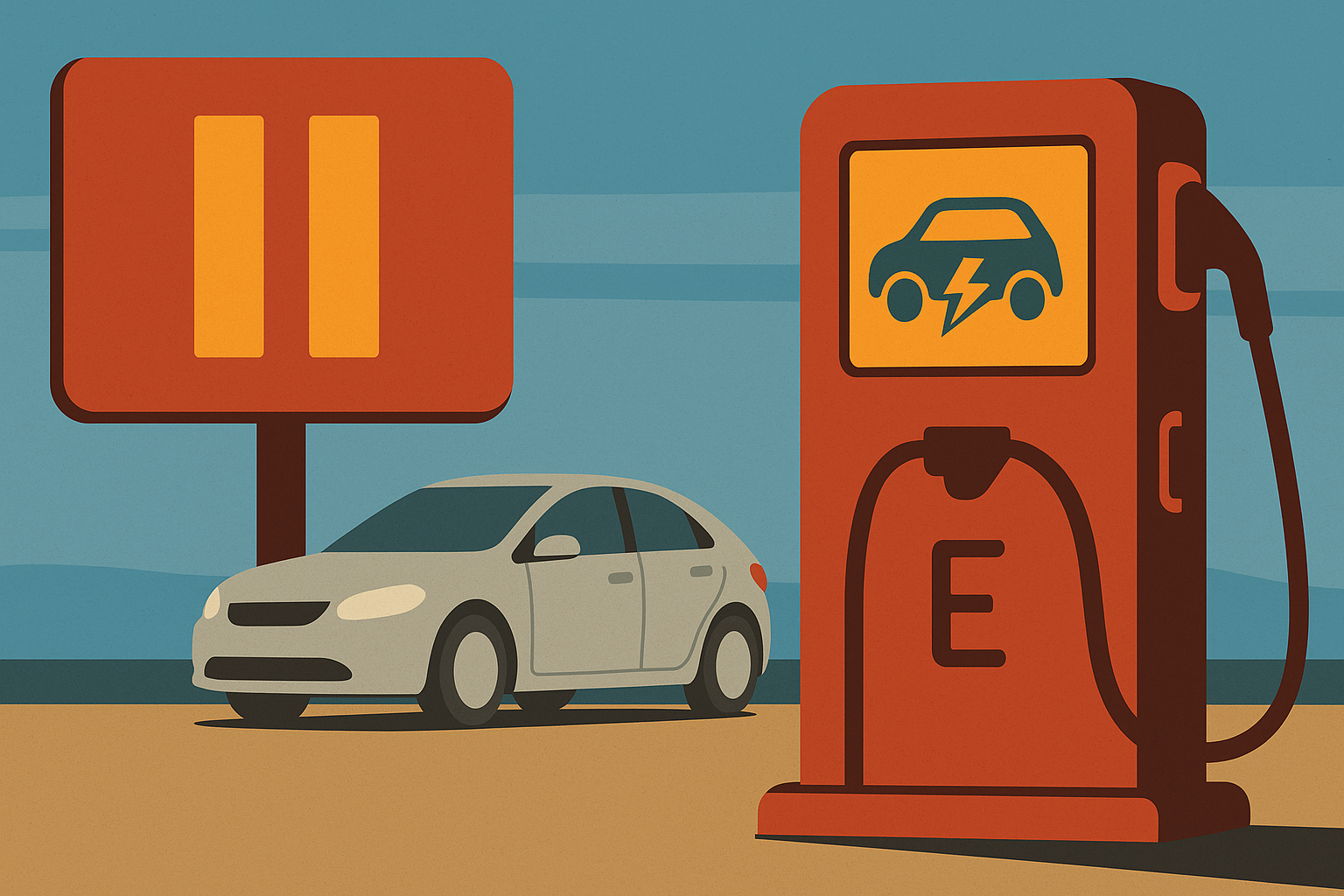A $7.5 billion federal initiative launched under President Joe Biden to create a nationwide electric vehicle (EV) charging network has stalled after installing fewer than 400 chargers. The project, aimed at combating “range anxiety” and supporting the transition to EVs, is on indefinite hold following a funding freeze by the Trump administration earlier this year.
The program, part of the 2021 Infrastructure Investment and Jobs Act, sought to install thousands of chargers at strategic locations — gas stations, rest stops, and other sites no more than 50 miles apart — to make long-distance EV travel more practical. The Biden administration positioned the effort as a key step in reducing dependence on gasoline-powered vehicles.
However, President Donald Trump has blocked further spending on the initiative, citing opposition to government mandates promoting EV adoption. The decision has prompted a coalition of Democratic-led states and nonprofit groups to file a lawsuit seeking to reinstate the funding.
Kentucky Governor Andy Beshear criticized the halt, stating:
“Electric and hybrid vehicles are no longer the technology of the future — they’re here now, and this technology is only becoming more important to our families and businesses.”
Range Anxiety and Adoption Challenges
Federal statistics show that EVs now account for about 3.5 million of the 287 million registered vehicles in the U.S. While EV ownership is growing — driven in part by federal tax incentives set to expire in September — many prospective buyers remain hesitant due to limited charging infrastructure, particularly for long-distance travel.
Although data indicates that 92.5% of trips taken in the U.S. are less than 25 miles, the Biden plan focused on interstate and highway chargers to address recharging concerns during road trips. Privately funded networks, such as Tesla’s Supercharger stations, remain unaffected by the federal funding freeze.
Program Delays and Inefficiencies
A report from the Government Accountability Office (GAO) earlier this year highlighted significant delays in the program’s rollout. By April, only 384 federally funded chargers had been built. The report cited complex approval processes involving federal and state agencies, private property owners, and power line installations as major hurdles.
Ryan McKinnon, spokesperson for the Charge Ahead Partnership — a coalition advocating for private-sector involvement in EV infrastructure — described the rollout as “a poster child for a nightmare of government inefficiency,” noting that different states had varying procurement rules and administrative processes.
Funding Limitations
As of May, there were about 77,000 public charging stations nationwide, most of which are slower models. By comparison, the U.S. has roughly 150,000 gas stations. McKinnon argued that the $7.5 billion allocation was only a “drop in the bucket” for creating a robust, nationwide charging network.
Despite the current pause, the Charge Ahead Partnership remains optimistic that the federal government will eventually release the funds with revised rules to make them more accessible for businesses.
“At the end of the day, this is a pro-business startup grant that helps entrepreneurs who want to offer a new service get a foot in the door,” McKinnon said.
The legal battle over the funding continues, leaving the future of the national EV charging network uncertain.



